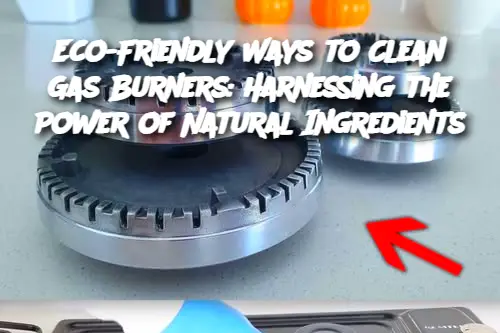ADVERTISEMENT
For Stronger Stains: You can create a stronger paste by adding a tablespoon of lemon juice to the baking soda and vinegar mixture. The acidity of lemon enhances the cleaning power.
For a Fresh Scent: Add a few drops of your favorite essential oil (such as lavender or lemon) to the cleaning mixture for a natural, pleasant scent.
For Extra Scrubbing Power: You can use salt instead of baking soda for a coarser scrub, particularly useful for burnt stains that need a little more abrasion.
FAQ:
1. Can I use this method for all types of gas burners?
Yes, this natural cleaning method is safe for most gas burners, including stainless steel and cast iron grates. Just be gentle when scrubbing to avoid scratches.
2. Will these ingredients remove heavy grease buildup?
Yes, the combination of baking soda, vinegar, and lemon juice is effective for tackling grease and grime. For heavier buildups, allow the paste to sit a little longer and scrub more aggressively.
3. Are these methods safe for the environment?
Absolutely! All the ingredients used in this cleaning process are natural, biodegradable, and non-toxic, making them an eco-friendly choice.
4. Can I clean gas burners without removing the grates?
Yes, you can clean the burners without removing the grates, but removing them allows for a more thorough cleaning. If you prefer to leave the grates in place, simply apply the cleaning paste to the surface of the burners and wipe it off after scrubbing.
5. How often should I clean my gas burners?
To keep your gas burners in top condition, it's best to clean them every 1-2 weeks, or sooner if you notice significant grease or food buildup. Regular cleaning helps prevent stubborn stains and maintains burner efficiency.
This eco-friendly method not only keeps your kitchen sparkling clean but also reduces your environmental impact. By using simple, natural ingredients, you can achieve a spotless cooking surface without relying on harsh chemicals.
ADVERTISEMENT
